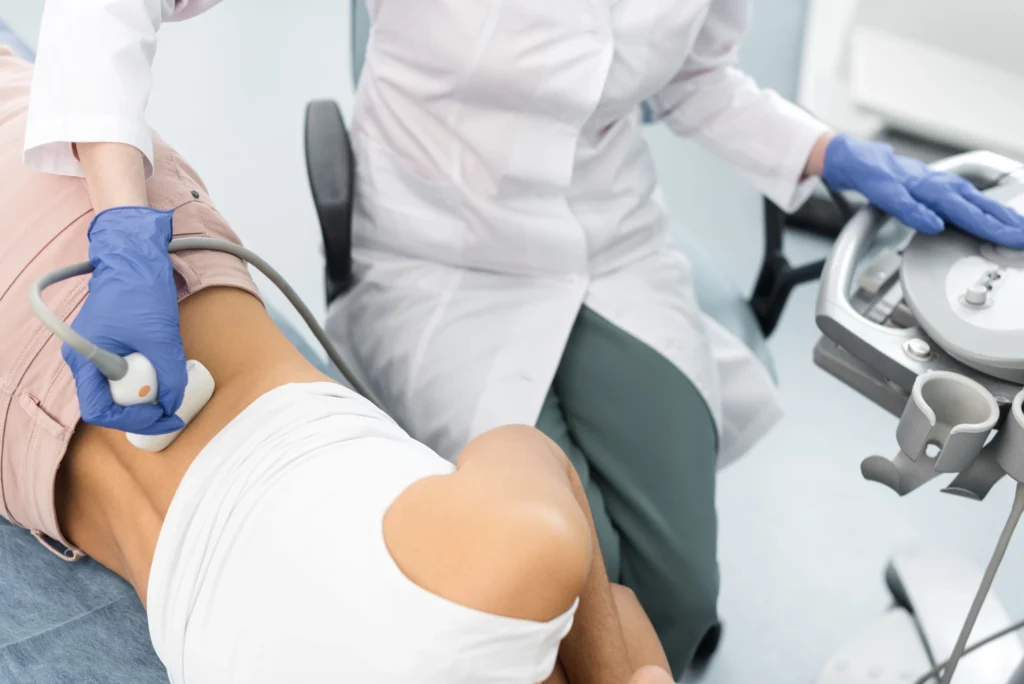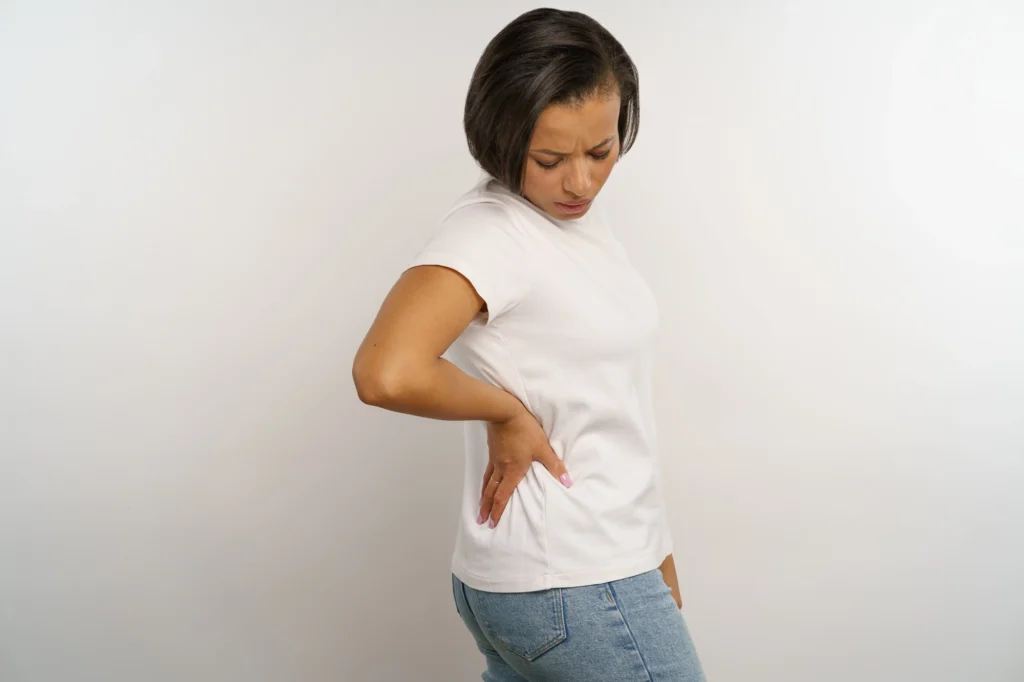
Table of Contents
ToggleBack pain and kidney stones are two very different things. Kidney stones are a painful condition that occurs when crystals form in the kidneys and then get stuck in the urinary tract.
This can cause severe pain in the back and/or abdomen, blood in the urine, nausea, vomiting and even fever. Kidney stones are very common: more than 5 million people have them each year.
Back pain usually results from an injury to your spine or muscles and tendons around your spine, but it can also be caused by arthritis or other conditions that affect your bones or joints.
If you’re experiencing back pain that gets worse when you urinate or see blood in your urine, you should see a doctor right away—you may have kidney stones!
A kidney stone is a solid piece of material that forms in the kidneys. They are usually made of calcium but can also be made of other minerals and salts.
Stones can be small or large and can pass through your urinary tract without causing any problems. However, if they get stuck somewhere along their journey, it can cause severe pain and discomfort until they’re removed by a doctor (or yourself).
When a person has kidney stones, it’s often because something in their body caused crystals to form.
These crystals then stick together and form a stone.
The most common cause of kidney stones is dehydration–drinking too little water can cause your urine to become too concentrated, which makes it easier for these minerals to form into crystals and stick together.
Other causes include:
In some cases, kidney stones can be genetic.

If you experience any of these symptoms, it’s important to see your doctor right away. Kidney stones can be painful and cause blood in the urine, nausea and vomiting, fever or chills.
If you have been diagnosed with kidney stones but are not experiencing any of these symptoms it is possible that they have passed through your urinary tract without causing any damage.
Many people experience both kidney stones and back pain at the same time. However, it’s important to understand that these two conditions are not related in any way. In fact, they’re completely different conditions with different causes and treatments.
Back pain can be caused by kidney stones that have moved into your urinary tract or even passed through it–which will cause you to feel sharp pains in your abdomen or lower back when you urinate or move around too much.
If this happens often enough, it may lead to chronic inflammation of your kidneys.
If you have back pain, it’s important to know that kidney stones can cause this symptom. However, there are many other things that could be causing your pain as well: a herniated disc, arthritis or muscle strain.
You may have sustained an injury to your spine that hasn’t healed properly yet or stenosis (the narrowing of the spinal canal).
Nerve compression can also cause similar symptoms as kidney stones do by putting pressure on nerves in the lower back area which sends signals of pain up through the body causing discomfort throughout all parts of your body including arms and legs too!

Back pain can be caused by a wide range of conditions, from minor issues like muscle cramps or pulled muscles, to serious conditions such as a herniated disc or kidney stones.
Sometimes back pain alone is enough to cause concern. If you’re experiencing back pain along with other symptoms like nausea, vomiting and fever — seek medical attention right away.
In some instances it can be hard to identify what’s causing the problem.
If you have back pain, it can be difficult to distinguish between a kidney stone and low back pain. While both are caused by the same thing–stones in your urinary tract–the symptoms of each condition are different.
Back pain from kidney stones is often felt in the lower abdomen or groin area and may radiate down into one or both legs. In addition to feeling severe discomfort in these areas, patients also experience nausea, vomiting and fever as well as blood in their urine (hematuria).
If left untreated for too long without treatment options like surgery or lithotripsy (a procedure that uses shock waves to break up large stones), kidney stones may become lodged within one of your kidneys which could lead to infection or even failure of that organ if not treated immediately.
Back pain and kidney stones are both treatable, but only one of them is life-changing.
Kidney stones are small deposits that form in the kidneys and can be painful, especially if they move through the urinary tract.
They’re formed when certain minerals mix with fluid in the urine. Kidney stones can range from tiny specks to larger chunks that require surgical removal.
Back pain can come from a variety of sources, including arthritis, muscle strain, and even tumors. But no matter what causes it, back pain can be debilitating—sometimes so much so that you can’t go about your daily activities without help or support.
It’s important to know when you need a doctor’s care vs. self-care options like over-the-counter pain relievers or stretching exercises.
As you can see, kidney stones and back pain are two very different conditions. One is caused by a blockage in the urinary tract, while the other results from an injury or infection affecting the spine.
They both cause severe pain that may last for days or even weeks at a time; however, there are treatments available if you suspect either condition in yourself or loved ones.
GET IN TOUCH +
285 Sills Road
Building 5-6, Suite E
East Patchogue, NY 11772
(631) 475-5511
184 N. Belle Mead Road
East Setauket, NY 11733
(631) 675-6226
GET IN TOUCH +
285 Sills Road
Building 5-6, Suite E
East Patchogue, NY 11772
(631) 475-5511
184 N. Belle Mead Road
East Setauket, NY 11733
(631) 675-6226
SUBSCRIBE TO OUR NEWSLETTER +
Send us a Google review. Click this link and let us know how we did!
Review us on Yelp too.